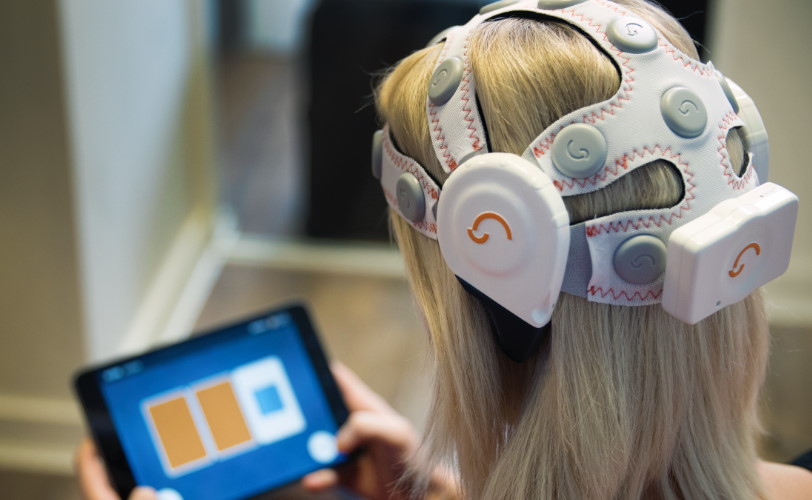Cumulus' gamified dry EEG system tops lab monitoring in trial

An at-home electroencephalogram (EEG) headset used alongside game-like cognitive tasks developed by UK company Cumulus Neuroscience has been shown to be more effective than lab-based EEG monitoring in a clinical trial.
The 'dry' EEG system provides an alterative to lab EEG systems using wet electrodes that require gel application, skin preparation, and clean-up procedures that can impede use of the technology in real-world settings.
Cumulus' system consists of an EEG headset that requires no gel, which links to game-like tasks carried out on a tablet to stimulate the brain while the monitoring is taking place.
It's been developed in collaboration with pharma companies to offer a way to incorporate EEG testing in clinical trials much more easily than at present, with the opportunity to harvest much more data over time.
The new study – published in the journal Frontiers in Digital Health – checked out the usability of the system at home by a group of unsupervised older and younger adults, with an average age of 68 and 26, respectively.
It found that home-based gamified dry EEG in aggregate "has superior precision to single in-lab based sessions," said Cumulus, and "could have transformative potential for enabling large-scale, real-world investigations in clinical research."
Two to four dry EEG sessions were needed to match the quality of wet EEG recordings, but that is easily offset by the capability of carrying out multiple recordings at home.
Adherence was also high, with older adults successfully completing 93% of sessions requested and reporting a mean usability score of 84, while younger adults completed 96% of sessions and reported a score of 88.
"Facilitating frequent, at-home assessment in CNS research will help address current difficulties in collecting longitudinal data that better demonstrates subtle changes in cognition over time, allowing for a better understanding of how brain disorders progress and how interventions may affect them," commented Florentine Barbey of Trinity College Dublin, where the study was carried out.
Barbey is co-author of the paper and a research scientist at Cumulus, which started a pair of clinical trials of the EEG headset combined with cognitive tasks earlier this year to see if it can help chart the course of neurodegenerative diseases, including Alzheimer's.
One of the clinical trials is looking at the feasibility of using repeated testing at home in 120 patients with early-stage Alzheimer's dementia over the course of 12 months, while the second will assess at-home use of the platform for a period of up to 37 weeks in individuals with amyotrophic lateral sclerosis (ALS) and frontotemporal dementia (FTD).
Various digital devices have been developed for detecting and tracking dementia, including several that are FDA-approved including Cognetivity Neurosciences' CognICA for example, but with the addition of physiological readings Cumulus is hoping to provide a more accurate assessment.












